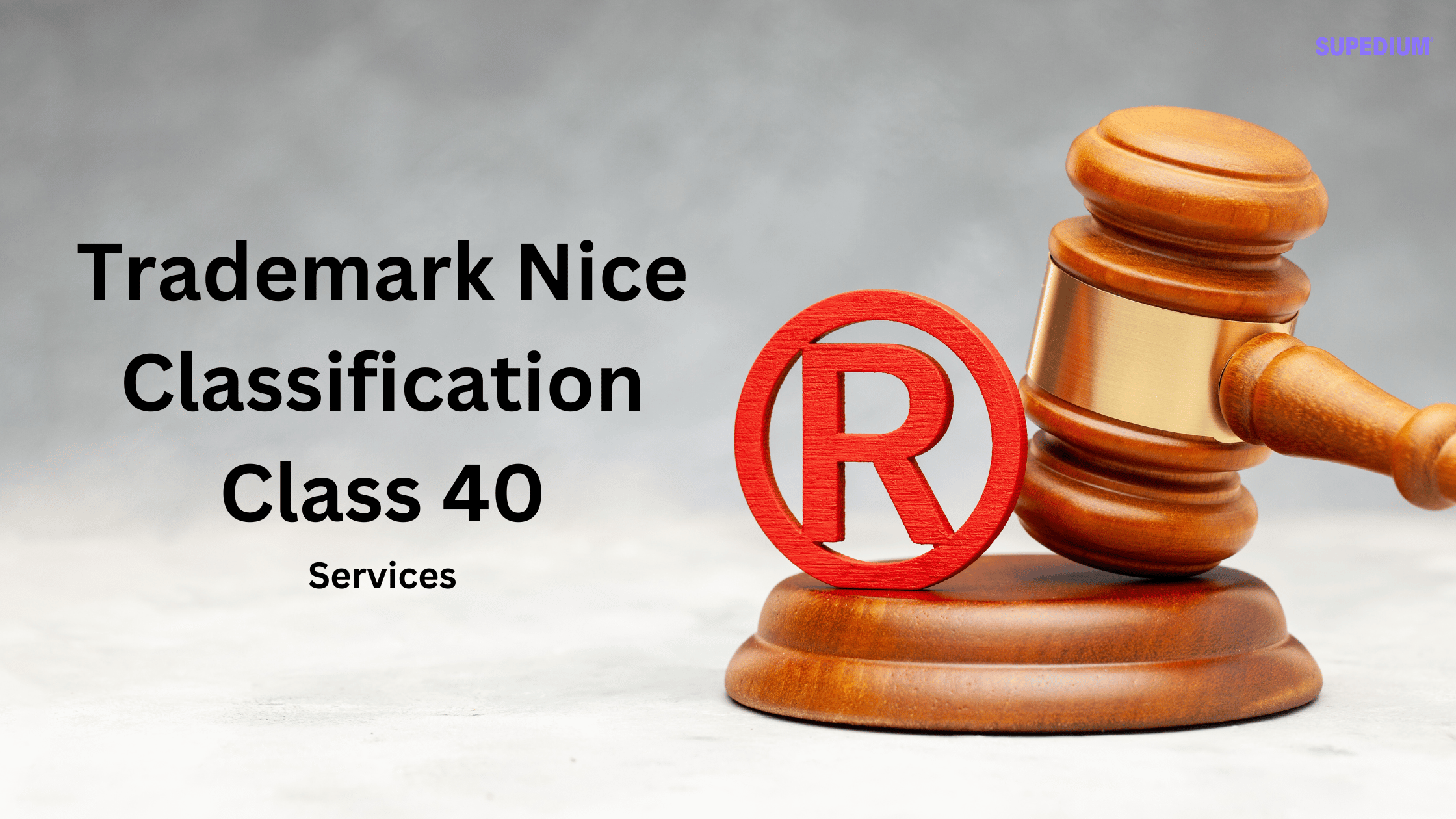Table of Contents
![]()
I. Introduction
The Nice Classification System is an international classification of goods and services used for the registration of trademarks. Among its various classes, Class 40 plays a crucial role, encompassing a range of services primarily related to the treatment and transformation of materials. This article delves into the scope of Class 40, detailing the services it includes, the distinctions between services and ancillary activities, and the practical implications for businesses seeking trademark protection.
II. Definition and Scope of Class 40
Class 40 is defined by its focus on services that involve the mechanical or chemical processing, transformation, or production of objects and substances. This class is particularly relevant for businesses that provide custom manufacturing services tailored to the specific needs of clients.
Distinction Between Services and Ancillary Activities
For the purposes of trademark classification, the production or manufacturing of goods is only considered a service when it is performed for another person based on their order and specifications. If the production is not fulfilling a specific customer request, it is typically regarded as ancillary to the primary commercial activity of the manufacturer. Additionally, if the processed or transformed substance is marketed directly by the producer, this too generally does not fall under the service classification.
III. Key Services Included in Class 40
A. Treatment of Materials
Class 40 encompasses various treatment processes, which may include mechanical and chemical methods of processing materials. Examples of such services include cutting, shaping, and polishing of materials, which are vital in industries ranging from manufacturing to construction.
B. Recycling Services
Recycling is a significant aspect of Class 40, focusing on the treatment and processing of waste materials. This not only helps reduce environmental impact but also contributes to sustainable practices in manufacturing and production.
C. Air and Water Treatment
The purification of air and treatment of water are critical services included in Class 40. These services are essential in maintaining public health and safety, employing various technologies and methods to ensure clean air and safe drinking water.
D. Printing Services
Printing services are another key component of Class 40. This includes various types of printing—ranging from commercial printing to specialized printing services—serving diverse sectors like advertising, publishing, and packaging.
E. Food and Drink Preservation
Food preservation services are vital to the food industry, involving techniques such as freezing, smoking, and other methods to extend the shelf life of food products. These processes not only help maintain food quality but also enhance safety for consumers.
IV. Custom Manufacturing Services
Custom manufacturing is a cornerstone of Class 40. This refers to the production of goods tailored specifically to the specifications of clients. Industries such as automotive, aerospace, and textiles benefit significantly from these services, allowing for a high degree of personalization and adaptability in production processes. It is essential for businesses engaging in custom manufacturing to be aware of any regulatory requirements and to clearly define the goods produced for trademark registration.
V. Exclusions from Class 40
While Class 40 covers a broad range of services, it also has clear exclusions. Services that do not entail a change in the essential properties of an object or substance are not included. Examples of such exclusions are:
A. Services Not Involving Essential Property Change
Services like furniture maintenance, repair, and general cleaning fall under Class 37, not Class 40. This includes activities such as laundering or window cleaning.
B. Construction-Related Services
Construction-related services, such as painting and plastering, are also excluded from Class 40, being classified under Class 37.
C. Distinction Between Food Decorating and Preservation
Importantly, services that involve the decorative aspect of food, such as food sculpting, are classified under Class 43, distinct from preservation services covered by Class 40.
VI. Practical Implications for Businesses
Understanding the nuances of Class 40 is vital for businesses looking to register their trademarks. Proper classification ensures protection under trademark law and can prevent potential legal disputes over misclassification. Businesses must carefully evaluate their services and how they fit within the Nice Classification System, especially in light of the strict definitions and exclusions.
VII. Conclusion
In summary, Class 40 of the Nice Classification System plays a vital role in trademark registration for services related to the treatment and transformation of materials. Businesses must recognize the significance of accurately classifying their services to ensure compliance and protection under trademark laws. As industries evolve, understanding the implications of classification will remain essential for future growth and sustainability in the marketplace.
Share This





Be the first to comment